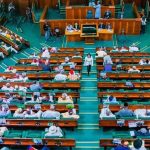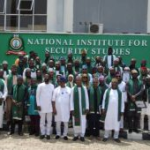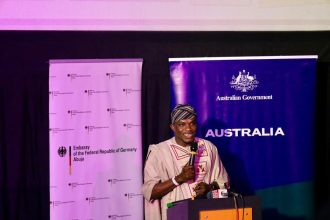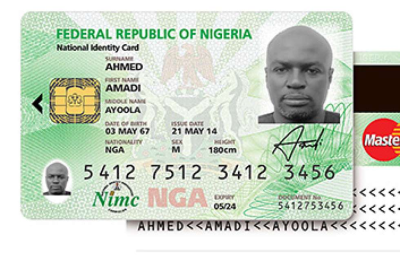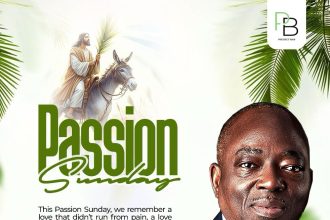PROTOCOL
This address at the Opening of the Legal Year Ceremony of the Supreme Court of Nigeria marks my first public address as President of the Nigerian Bar Association (NBA). Today’s event is threefold:
- A celebration of the personal achievements of those joining the rank of Senior Advocates of Nigeria,
- Reaffirming our collective commitment to advancing the administration of justice in Nigeria as we mark the formal opening of this Court’s Legal Year,
- And celebrating the appointment and swearing-in of Honourable Justice Kudirat Motonmori Olatokunbo Kekere-Ekun, CFR, as the 23rd Chief Justice of Nigeria (CJN), the 19th indigenous CJN, and the second female CJN.
I, therefore, at this point, congratulate Honourable Justice Kudirat Motonmori Olatokunbo Kekere-Ekun, CFR, on her appointment and swearing-in as the Chief Justice of Nigeria. Her Lordship is taking the helm at a time when much is expected from the judiciary. It is widely agreed that Nigeria can only attain the desired socio-economic and political development, stability, and sustainability if it has an effective and efficient justice system, which establishes and guarantees the maintenance of laws and the regulation of state and citizen behaviour.
Nigerians are groaning under the weight of depleted public revenue, occasioned by profligacy, waste in governance, misplaced priorities, lack of accountability, terrorism, insecurity, lack of transparency in managing public funds, corrupt practices, gross violations of human rights, prolonged detention without trial, disobedience of court orders, and intimidation of judicial officers.

Thus, Nigerians expect that effective justice administration is the only thing that could guarantee them some degree of enjoyment of their fundamental rights and accountability in government. Indeed, many Nigerians have likened the hope for effective justice delivery to “waiting for Godot.”

Of the three arms of government, the judiciary is the branch that directs society toward attaining justice. Institutionally, the judiciary upholds the rule of law and ensures its supremacy. From the CJN’s answers during her Senate Confirmation hearing, we believe that efficiency, transparency, and accountability will be her watchwords.
The NBA believes that while His Lordship may be called the Chief Justice of Nigeria in the title, she will, in practice and conviction, remain a reliable jurist and colleague to all, regardless of status, age, niche, or origin. We believe she will improve the standing of the Nigerian judiciary, proactively address issues affecting the administration of justice, and champion the appointment of judicial officers devoid of political influence, personal relations, or connections.
The opening of the legal year is a time for reflection, renewal, and rededication to the values of justice, fairness, and the rule of law. It allows us to acknowledge the judiciary’s work over the past year while looking forward to future challenges and opportunities. This event is, consequently, more than just a ceremonial occasion.

It is a moment for law officers to reaffirm their dedication to justice, the rule of law, and the protection of citizens’ rights and freedoms. The judiciary is the bedrock of our democracy, and through our collective work, justice finds expression in Nigerians’ daily lives.
This Legal Year ceremony is coming at a time when, as a past Chief Justice of Nigeria, Honourable Justice Dahiru Musdapher, of blessed memory, once remarked: “It appears that society is not entirely satisfied with the performance of the judiciary.” Some might argue that public opinion is inconsequential to court decisions, while others insist that perception is stronger than reality.
Perception is of utmost importance, especially in the administration of justice. I will illustrate this point using decisions in electoral matters, where public perception can create an atmosphere of distrust even when justice is done. Problems arise when court decisions do not meet people’s expectations or, worse, when they believe that court judgments lack justice.
I must admit that while our courts have done creditably well, there is room for improvement. A revered past President of the NBA, J.B. Daudu, SAN, once said: “The judiciary has had its share of the good, bad, and ugly. But it remains the last hope of the common man.”
As we look back on the previous year, it is essential to acknowledge the remarkable resilience of the judiciary in the face of numerous challenges. However, we must also address significant difficulties hindering the administration of justice in Nigeria, such as delays in justice delivery, often caused by an overburdened court system and procedural bottlenecks.
These delays erode public trust in the judiciary. We must renew our commitment to addressing these inefficiencies, particularly the need for modernizing court systems, reducing the backlog of cases, and making justice more accessible, especially to marginalized communities.
At the Bar, we will advocate for computerising litigation processes, including recording court proceedings in all superior courts. We will also propose judicial reforms in case management and scheduling, enforcing NBA email addresses for filing all processes and customized email addresses for all court registries.
Under Your Lordship’s leadership of the National Judicial Council (NJC), we expect the NBA to collaborate with the NJC and various Heads of Courts to effectively use the NJC-initiated Legal Mail project.
My Lord, I also urge Your Lordship to take steps to end the growing trend of overly publicized and lavish swearing-in ceremonies for judicial officers. This exposes them to politicians and politically exposed persons, eroding the solemnity of their office.
Now, may I congratulate the new Senior Advocates of Nigeria. The Senior Advocate of Nigeria rank recognizes your outstanding merit and excellence in the legal profession. It is not given lightly but earned through hard work, dedication, and commitment to law practice. As Senior Advocates, you are expected to uphold the highest standards of legal practice, ethics, and integrity and mentor younger lawyers, guiding them in their professional journeys.
You must live by example and contribute meaningfully to our nation’s development. The prestige of the SAN title comes with greater responsibility for advancing legal reforms and ensuring accountability in governance.
We must also call for a review of the Guidelines for the Conferment of the Rank of Senior Advocate of Nigeria, particularly for legal academics. Furthermore, we need to reform the Legal Practitioners Disciplinary Committee (LPDC) Rules, 2020 to expedite the disciplinary process and ensure the NBA plays a role in investigating and prosecuting complaints of professional misconduct.
Finally, as lawyers, we must support the judiciary in delivering justice. The NBA remains fully committed to collaborating with the judiciary to address these challenges, whether through advocating for judicial reforms, promoting continuing legal education, or enhancing access to justice.
CONCLUSION
We must rededicate ourselves to the pursuit of justice. We bear the enormous responsibility of upholding the rule of law and ensuring the judiciary remains the last hope of the common man. The NBA pledges its continued support for the judiciary and its unwavering commitment to improving the administration of justice in Nigeria.
Let us move together into this new legal year with a renewed determination to uphold the rule of law and build a stronger, more just Nigeria.
God bless the Supreme Court of Nigeria,
God bless the Judiciary,
God bless the Legal Profession,
God bless the Federal Republic of Nigeria.
Mazi Afam Osigwe, SAN
President, Nigerian Bar Association
September 30, 2024




